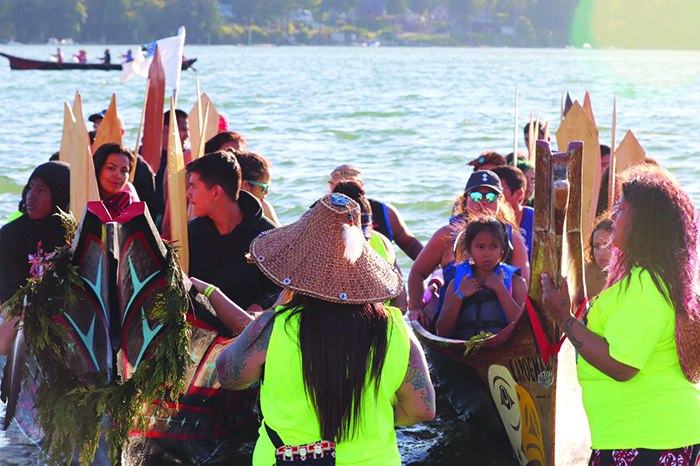
By Kalvin Valdillez, Tulalip News
The weather in Tulalip was gorgeous on the afternoon of July 21. The clear-skies and warm eighty-degree weather provided an amazing view to many families, from near and far, who were setting up canopies and umbrellas for shade on the bluff overlooking Tulalip Bay. After informally reserving their spots, the people found ways to occupy their time, patiently waiting for the tide to come in; some by swimming, some by visiting with friends and family and some by checking out Indigenous art, clothing and jewelry by a number of vendors stationed outside of the Don Hatch Youth Center. An eagle, perched high in a tree overlooking the bay, scanned far past the inlet as if anticipating the arrival of the canoes.
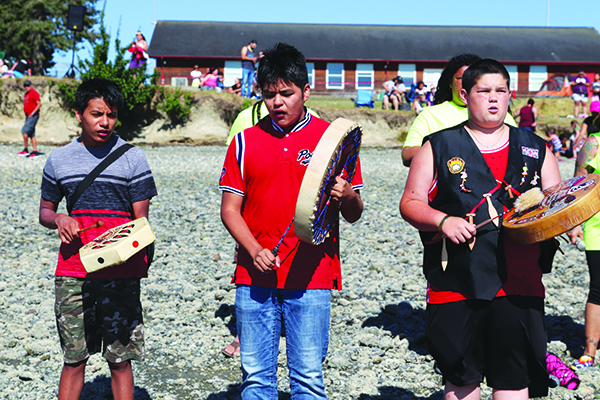
2019 marks thirty years since the Paddle to Seattle, in which a number of Coast Salish tribes pulled into the shores of Elliot Bay, officially kicking off Washington State’s Centennial celebration in 1989. Organized by Quinault tribal member, Emmett Oliver, the pull sparked a cultural revolution, reconnecting tribes to the traditional lifeways of our ancestors and inspiring the yearly summertime Canoe Journey.
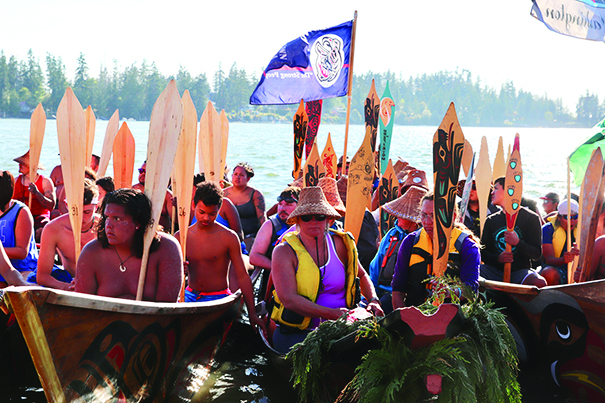
For three decades, tribal families have navigated the sacred Salish waters, traveling to each nation before reaching the hosting tribe’s village. The final destination changes annually, as each tribe takes turns hosting the event. This year’s paddle concludes in Lummi on July 24, and a weeklong protocol will take place, where each tribe and First Nation band will offer their traditional family songs and dances, in celebration of the Journey.
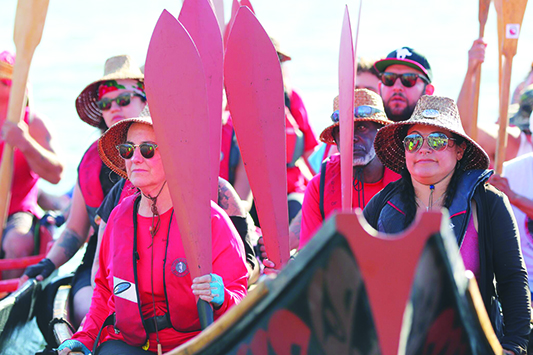
The tribes are represented by their canoe families and many times there are numerous canoe families within a tribe. The canoe pullers travel for hours at a time underneath the hot sun and spend an evening with each tribal nation over dinner and mini-protocols before launching their canoes back into the Salish Sea in the morning.
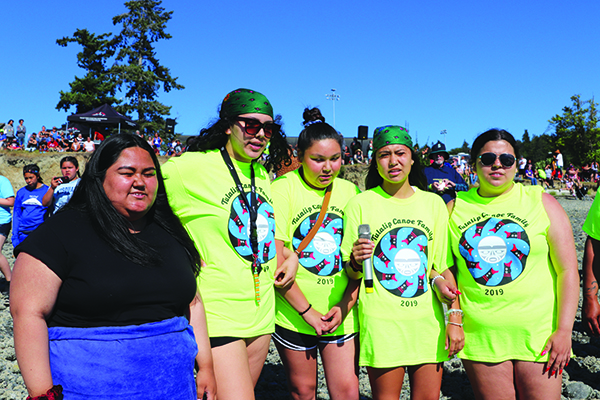
After several weeks out on the water, the canoe families left the Suquamish Nation early Sunday morning and as soon the tide came in at Tulalip Bay, the canoes arrived by the dozen. One by one, the canoe families were graciously welcomed in the traditional Lushootseed language by the Tulalip Youth Council as well as Tulalip tribal member and Lushootseed Language Instructor, Natosha Gobin. Quinault, Ahousaht, Muckleshoot, Squaxin, Elwha, Makah and Tse Tshat, were among the many nations who offered a blessing song and words in their traditional languages, officially asking for permission to come ashore.

Tulalip welcomed nearly seventy canoes to their shores this year, approximately forty more visitors than last year’s Paddle to Puyallup. Among those canoes was the Autumn Rose, hailing from Maui, Hawaii. In a moving exchange, the Hawaiian canoe family offered a song and spoke about their current fight to protect their sacred, ancestral lands from the construction of a giant telescope atop the dormant volcano, Mauna Kea. As she welcomed them ashore, Natosha assured the Hawaiian canoe family that the Coast Salish tribes stand in solidarity with their movement. Many tribal members, including Suquamish songstress Calina Lawrence, held up signs reading Protect Mauna Kea, and a roar of applause and drumming erupted from the spectators and fellow pullers to show support to the cause.
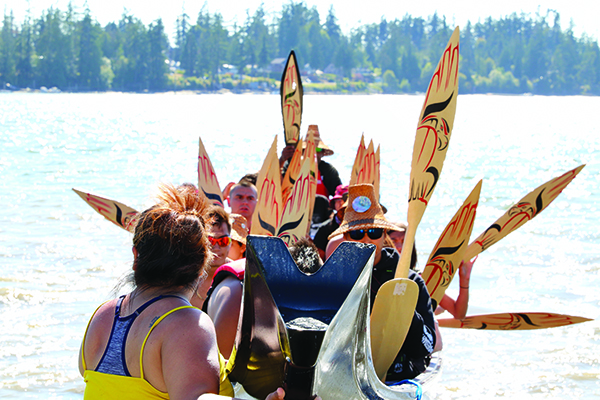
Once ashore, the canoe families and onlookers were treated to a meal inside the Greg Williams Court as well as a two-hour protocol jam at the Tulalip longhouse. After a well-deserved rest, the pullers woke bright and early, thanking Tulalip for their hospitality before continuing the journey to Lummi, making brief visits in Swinomish and Samish.
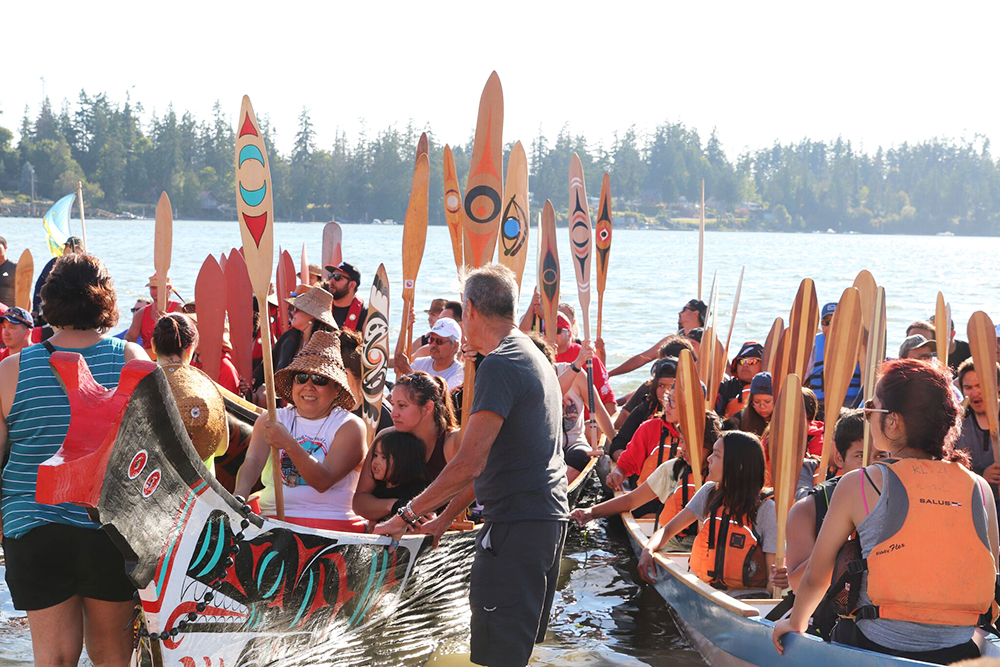
“I pulled all day today,” proudly expressed young Quinault and Ahousaht puller, Noah Charlie. “My arm is sore but I had fun pulling. It was really cool seeing all the chupats (canoes) out there on the water. I like hearing everybody’s songs and meeting new friends. It’s good medicine and plus I like seeing my family, all my grandmas, and watching kids have fun.”
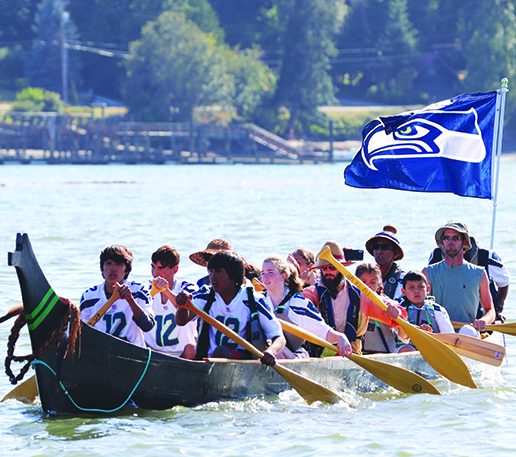
For more information, photos and updates, please visit the Tribal Canoe Journeys Facebook page.